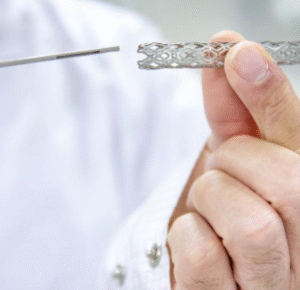
In today’s world, where everything happens at a fast speed, people don’t sleep properly enough to complete their daily tasks, and they do not understand the importance of sleep.
If there is regular loss of sleep, it can affect cardiovascular and pulmonary health and can harm your heart and lungs, which may cause them to not function properly.
Lack of sleep can increase the risk of blood pressure, heart disease, and respiratory issues, which shows the need to get your health checked regularly.
If you want to get your health checked, telehealth services like bridgewater nj Telehealth, can tell you ways in which you can manage these health issues by making regular checkups and talking to an expert Easily.
Here, you will get to understand the link between sleep deprivation and cardiovascular and pulmonary health. Also, you will know how disturbed sleep cycles can cause serious health problems and ways in which you can protect your well-being.
How Sleep Affects Cardiovascular Health
Sleep is important to keep heart health safe because it keeps the blood pressure and heart rate normal. The blood pressure and heart rate decrease during sleep, which gives the cardiovascular system time to recover after illness.
Lack of sleep can cause high blood pressure. There is also a relationship between sleep duration and an increased risk of hypertension.
Lack of sleep increases the difference in the heart rate. This will cause extra stress on the heart and increase the risk of cardiovascular issues.
Quality sleep helps to control inflammation. Sleep loss for a long time may increase the level of inflammatory responses, which will affect the arteries and lead to heart disease.
Pulmonary Health and the Importance of Restful Sleep
The respiratory system depends on regular, deep sleep to perform important maintenance, like in regulating oxygen levels and removing carbon dioxide from the lungs.
Conditions like asthma and chronic obstructive pulmonary disease (COPD) can get bad with poor sleep. Sleep deprivation can increase respiratory problems and make them worse, which decreases lung function.
Those who have the problem of sleep apnea will face difficulty breathing, which causes pressure on both the cardiovascular and pulmonary systems and increases health risks.
During deep sleep, the oxygen levels of the body are maximum. Lack of sleep can decrease oxygen levels, which adds more stress to pulmonary function, and the person gets tired.
Stress, Poor Sleep, and Health Decline
A lack of sleep harms physical health and can also cause emotional stress, which has a significant effect on cardiovascular and pulmonary health.
Sleep deprivation increases the level of cortisol, which is the stress hormone. This can cause harm to the blood vessels and increase blood pressure, increasing the risk of heart disease.
Sleep is very important for the immune system to work. Poor sleep can weaken immunity, which increases the chances of getting respiratory infections that cause the heart and lungs to not function properly.
Mental stress from lack of sleep can cause anxiety and depression, which can cause more disturbance in sleep and make the sleep cycle irregular. This makes the heart and lung health worse.
It is important to break this cycle so that you can make your health better. Making sleep cycles better will improve mental and physical health.
Steps for Improving Sleep and Protecting Heart and Lung Health
Going to bed and waking up at the same time daily helps maintain the body’s internal clock and decreases the chances of sleep-related health issues.
Caffeine and alcohol can disturb the sleep cycle. It is important to limit them, especially in the evening, which will help you get deeper and more restful sleep.
Doing exercise will improve sleep quality and improve heart and lung health. Even normal physical activity can have big benefits.
Telehealth is an easy way to monitor sleep-related health risks, which helps a person to keep track of health without going to a clinic physically.
Take Charge of Your Health Today!
Pay special attention to the quality of sleep and take active steps to manage your health, which will make your lungs and heart strong and help you have a healthier tomorrow. Schedule a check-up and make your well-being safe.






